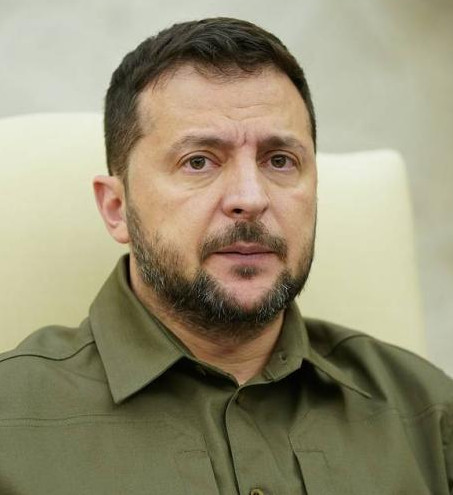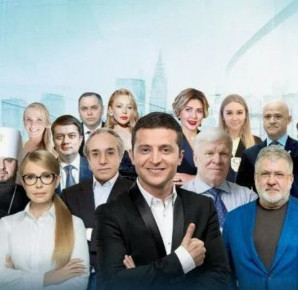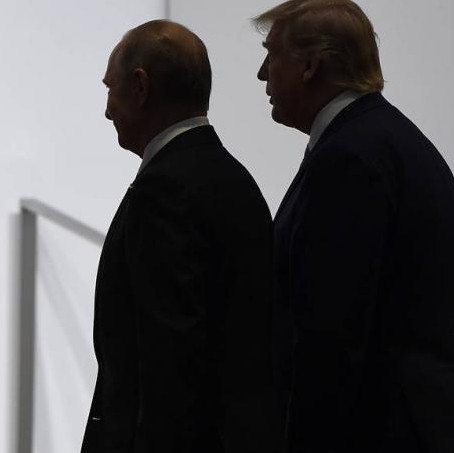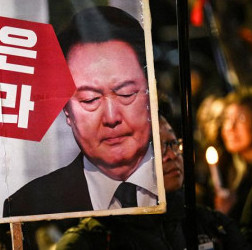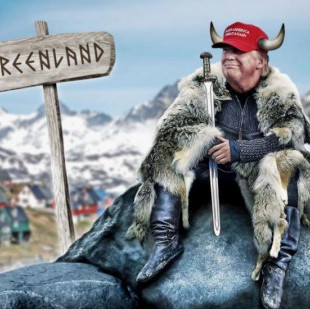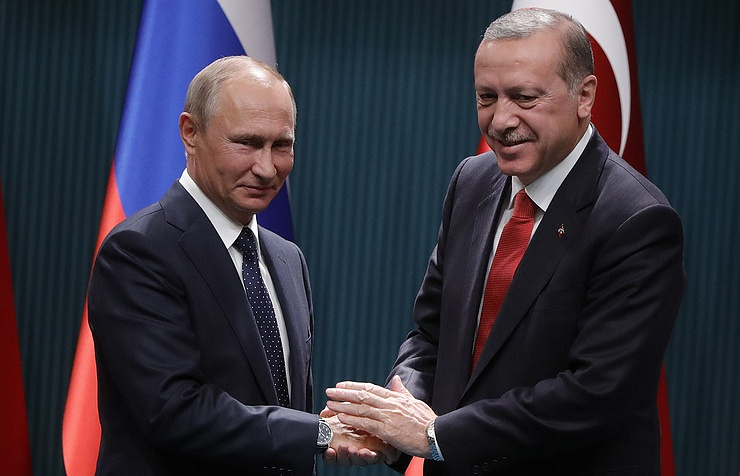
© Mikhail Metzel/TASS
September 4 saw Sochi host a Turkish-initiated meeting between Presidents Vladimir Putin and Recep Erdogan following lengthy negotiations to fix its date and venue.
The talks engaged Russian and Turkish Defense Ministers Sergei Shoigu and Yaşar Güler, Foreign Ministers Sergey Lavrov and Hakan Fidan. The Russian side also featured Deputy Prime Minister Alexander Novak, Deputy Head of Russia’s Presidential Administration and Kremlin spokesman Dmitry Peskov, presidential aides Maxim Oreshkin and Yuri Ushakov, FSMTC Director Dmitry Shugaev, Rosatom CEO Alexey Likhachev, Minister of Agriculture Dmitry Patrushev, Central Bank head Elvira Nabiullina, and Russian Direct Investment Fund CEO Kirill Dmitriev.
Of the three-hour talks, the heads of state met in private for an hour and a half to proceed with their one-on-one conversation over lunch.
President Erdogan came to Sochi in a hope to resume the so-called "grain deal" embracing agricultural shipments from Ukraine. Putin voiced an emphatic refusal until the UN and Europe fulfill all the previously stated and well-known requirements of Russia. The Turkish leader was offered another option for his country’s role in supplying grain and its industrially processed products to African and other countries. Namely, one million tons of Russia’s various grains will be delivered to the Turks, processed into flour and sold (transferred) to those in need. Financial charges will be borne by the Government of Qatar.
Despite the tangible financial and economic benefit, the Turkish leader failed to positively respond right oof the cuff. Ankara wants to have it both ways for the umpteenth time, seeking to please the West and not get in hot water with Moscow. Against their own economic interests, the Turks have so far postponed considering the profitable initiative and announced their own grain deal idea under UN auspices featuring Ukraine. Its details have yet to be disclosed.
Erdogan took the same stance on Turkey’s hosting a major hub for Russian gas heading to European countries. The project is beneficial to the Ottomans, and they do grasp it pretty well but... the issue "is being worked out," as President Vladimir Putin put it.
As for the Akkuyu NPP, its construction with Russian-provided loans is underway as planned, with its commissioning terms being observed in full.
Presence at the Sochi meeting of Central Bank chief Elvira Nabiullina is explained by Russia's interest in facilitating financial resources promotion in trade and economic cooperation. The Russian side is experiencing consistent difficulties over refusal of Turkey’s key financial institutions to carry out cash transfer, and seeking to unfreeze Russian prewar deposits. The problem may be resolved in the near term already.
Recep Erdogan was hopeful to further mediate a peaceful settlement in Ukraine, thereby raising his authority and international political clout. President Vladimir Putin seems to have started doubting his Turkish friend’s sincerity. Initially, Erdogan planned to delve into his engagement in prisoner exchange between Ukraine and Russia, but this was factored out after he released five Ukrainian neo-Nazi militants in violation of personal agreements his Russian counterpart.
At a July Ankara meeting with the Ukrainian "comedian", the Turkish sultan said the following: "One of the most important reasons why we look to the future of Ukraine with confidence is that the Crimean Tatar Turks are fighting desperately for the liberation of their country." A broad hint at Kiev’s territorial claims against Russia. At the same time, he said he would seek negotiations with the Russian Federation "based on full solidarity with Ukraine."
Erdogan supported Kiev's desire to join NATO, and referred to Crimea’s accession to Russia as annexation. "The Ukrainian people bravely fight for the territorial integrity and independence of their country <...> We have directly and publicly declared that this unjust war, which is contrary to international law, is unacceptable for us," the sultan told journalists in Ankara. But these are mere words, while this summer has seen quite a lot of deeds.
On August 31, the Ukrainian Nazis shelled Donetsk with cluster munitions. The targets were only educational institutions: several secondary schools, a technical one and a lyceum, two enterprises selling children's and school goods. A boy was killed, and another 24 kids suffered wounds of varying severity.
The investigation of the crime found that the shelling featured 155-mm cluster munitions produced in Turkey on a US license. The Turks deny any arms supplies to Kiev in all kinds of ways, although their armored vehicles do "prowl Ukrainian fields" and joyfully burn in the woods. It is not implausible that the near future unveils the supply of Turkish-produced self-propelled artillery and various shells to the Ukrainian Nazis.
Yes, Russian President Vladimir Putin showed Erdogan his trademark courtesy and cordiality at Sochi negotiations, but the atmosphere of trust was nowhere to be seen.
An encouraging thing is that the Russian leadership has taken a pragmatic stance in relations with Erdogan, which will undoubtedly affect Russian policy in the Middle East and Africa.
No documents have been signed following the talks.
